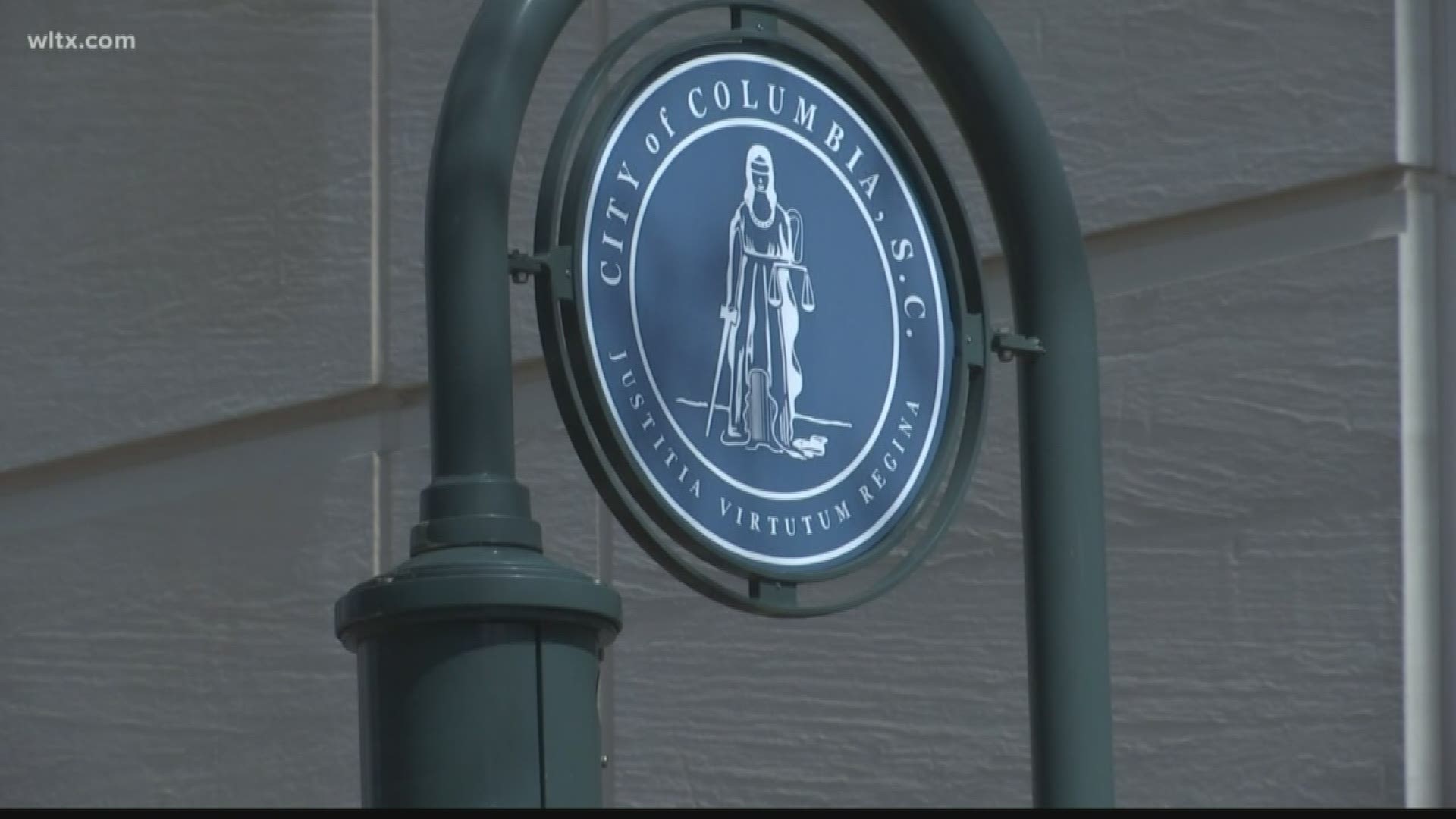COLUMBIA, S.C. — The announcement of the "Stay Home, Stay Safe" ordinance in Columbia raised some questions from residents.
The ordinance requires that people stay in their homes and not travel through or congregate in the streets, sidewalks, waterways and/or public spaces in the City of Columbia.
Columbia City Council approved the ordinance on Thursday, but it goes into effect at 12:01 am Sunday, March 29th.
Does the ordinance apply to me?
The ordinance applies to everyone who lives or operates a business within Columbia's city limits.
Here is a map of the City of Columbia.
If you can't tell from the map, you can also take a look at your recycling bins. If they are blue, and have the city's seal on the side, then you live within the city limits.
What are the essential services?
The list of essential services is pretty extensive, but it basically includes health care services, grocery stores, law enforcement and financial institutions.
- Heath care services, including research labs, hospitals, walk-in care facilities, veterinary and livestock services, elder care, medical wholesale and distribution, home health care workers or aides, doctor and emergency dental, nursing homes or residential health care facilities or congregate care facilities, medical supplies and equipment manufactures and providers.
- Essential infrastructure services, including power generation, fuel supply and transmission, public water and wastewater, telecommunication and data centers, airports/airlines, transportation infrastructure such as bus, rail, or for-hire vehicles, garages, vehicle sales and services, hotels, and places of accommodation, the South Carolina Port Authority
- Essential manufacturing including food processing, manufacturing agents, including all foods and beverages chemicals, medical equipment/instruments, pharmaceuticals, sanitary products, telecommunications, microelectronics/semi-conductor, agriculture/farms, household paper products, vehicle and aircraft manufacturing
- Essential retail, including grocery stores, food and beverage stores, pet stores that sell food and medications, big box stores, wholesale clubs that have grocery and pharmacy, convenience stores, direct farm to consumer sales, gas stations, restaurant/bars (takeout/drive-thru/delivery only), hardware and building material stores and online retailers that deliver products and services to individuals homes and businesses.
- Garbage, trash, recycling, mail, shipping services, laundromats, dry cleaning, building cleaning and maintenance, child care services, warehouse distribution and fulfillment, funeral homes, crematoriums, cemeteries, storage for essential businesses, animal shelters, education institutions for distance learning, research, and essential functions.
- News media
- Financial institutions and professional services operations including banks, credit unions, check-cashing services, insurance, payroll, accounting, and services related to financial markets, and legal services. Travel agencies for the purpose of cancellations and refunding.
- Services for economically disadvantaged people, including homeless shelters, food banks, human services providers whose function includes the direct care of patients in state-licensed or funded voluntary programs, those operating community shelters and other critical human services agencies providing direct care or support.
- Commercial and residential construction, including electricians, plumbers, landscape services, pool maintenance, nurseries, construction firms and people needed for emergency repair and safety purposes
- Defense operations including defense and national security-related operations
- Law enforcement, fire prevention, building code enforcement, security, emergency management and response, building cleaners and janitors, general maintenance whether employed by the direct entity or a vendor, automotive repair, motorcycle and bicycle repair, disinfection, mail, post, shipping, logistics, delivery, and pick-up services.
- Real-estate brokers and real estate management
Will there be a statewide order?
At this time, no. Governor Henry McMaster has not issued a stay-at-home order for the Palmetto State. However, he does suggest that people limits groups to less than three people and wash their hands to prevent the spread of the virus.
"If they follow the rules that are suggested and required here that are based on science, data and experts, if they will do those things then we don't have to have mandates like they may have in some other parts of the country," says Gov. McMaster.
The ordinance goes into effect at 12:01 am Sunday, March 29, 2020.

